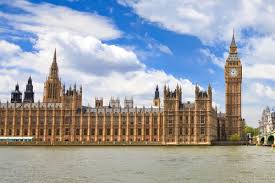Brexit: NautaDutilh geeft antwoord op 6 prangende M&A-vragen

Brexit kan grote, juridische gevolgen hebben voor M&A-transacties tussen het Verenigd Koninkrijk en Nederland. NautaDutilh heeft een Brexit-FAQ geschreven waarin ook specifieke M&A-vragen worden beantwoord.
Nu de Britten geen onderdeel meer zullen zijn van de EU, breekt een periode van onzekerheid aan. To whom it may concern, NautaDutilh biedt eerste hulp bij de belangrijkste vragen over M&A-transacties.
1. Can UK and Benelux companies continue to merge post-Brexit?
Currently, Dutch limited liability companies, as well as the European Cooperative Company, may enter into a cross border merger with their UK equivalents. Cross border mergers involving the UK may be excluded following Brexit. Belgian and Luxembourg companies may merge cross-border with non-EU companies, however they do not benefit from the cross-border merger directive. Consequently, a cross-border merger of a Belgian or Luxembourg legal entity with a UK entity will only be possible if permitted under the relevant UK law.
2. Today a Dutch, Belgian or Luxembourg company can be converted into a UK company. Is that still possible after Brexit?
EU member states must allow the conversion (omzetting) of domestic limited liability companies in entities of other EU/EEA member states. After Brexit, conversion of, or into, a UK entity may become impossible to achieve. Under Luxembourg law, it remains possible to migrate a company to the UK if the UK allows the same.
3. Are there significant effects for Benelux companies listed in London?
As a result of Brexit, EU-wide mandatory offer rules may cease to apply to Dutch, Belgian and Luxembourg issuers whose shares are listed on the LSE. This may affect exit rights of minority shareholders of such issuers, in case a shareholder builds up a stake of 30% or more in such a Benelux company.
4. What corporate law applies to an English limited that is exclusively operating in the Netherlands?
The Dutch Act on Foreign Companies (Wet formeel buitenlandse vennootschappen) shall become applicable to UK legal entities that exclusively or almost exclusively conduct their activities in the Netherlands. This is in addition to its home rules on corporate law. This means, for example, that an English limited company will have to register with the Dutch trade register, annually file financial statements, not make profit distributions unless permitted by Dutch law, and that its directors may be liable in case of its bankruptcy in case of improper management.
5. Does it make sense to make continental transactions subject to English courts and English law?
Given the uncertainty that surrounds the enforcement and recognition of decisions of English courts post-Brexit, and also taking into account that English courts will no longer be bound by decisions of the EU Court of Justice, dispute resolution via English fora, and English law as governing law for that matter, in relation to continental EU transactions with no real English connection may no longer be a sensible alternative. In particular, shareholders agreements regarding a Dutch, Belgian or Luxembourg company should not be governed by English law.
6. What is the influence of a Brexit on an SE?
After a Brexit UK companies cannot longer transform into an SE. If a company from a member state wishes to become an SE, employees of an UK business or UK subsidiary are not eligible to become members of the special negotiation committee which negotiates with the management about employee co-determination.









